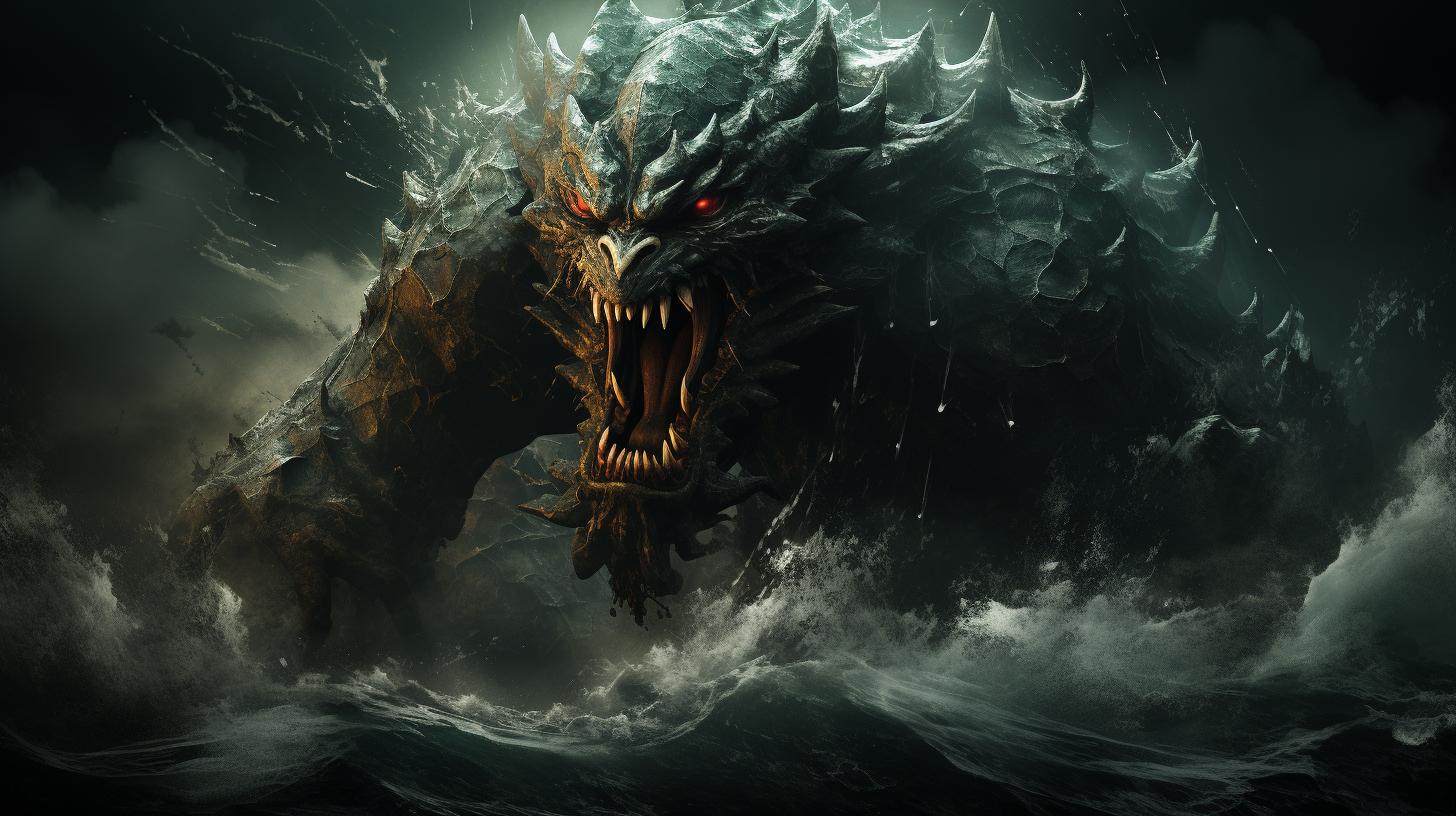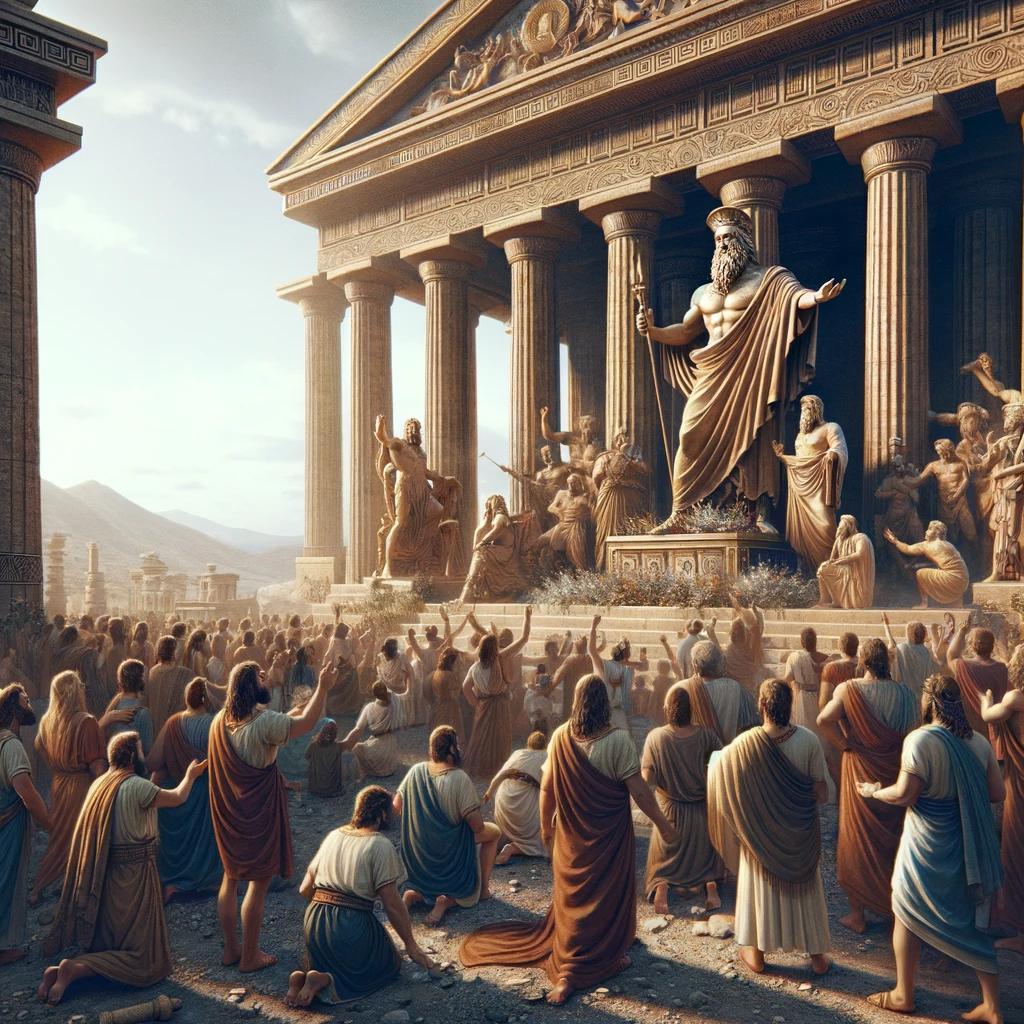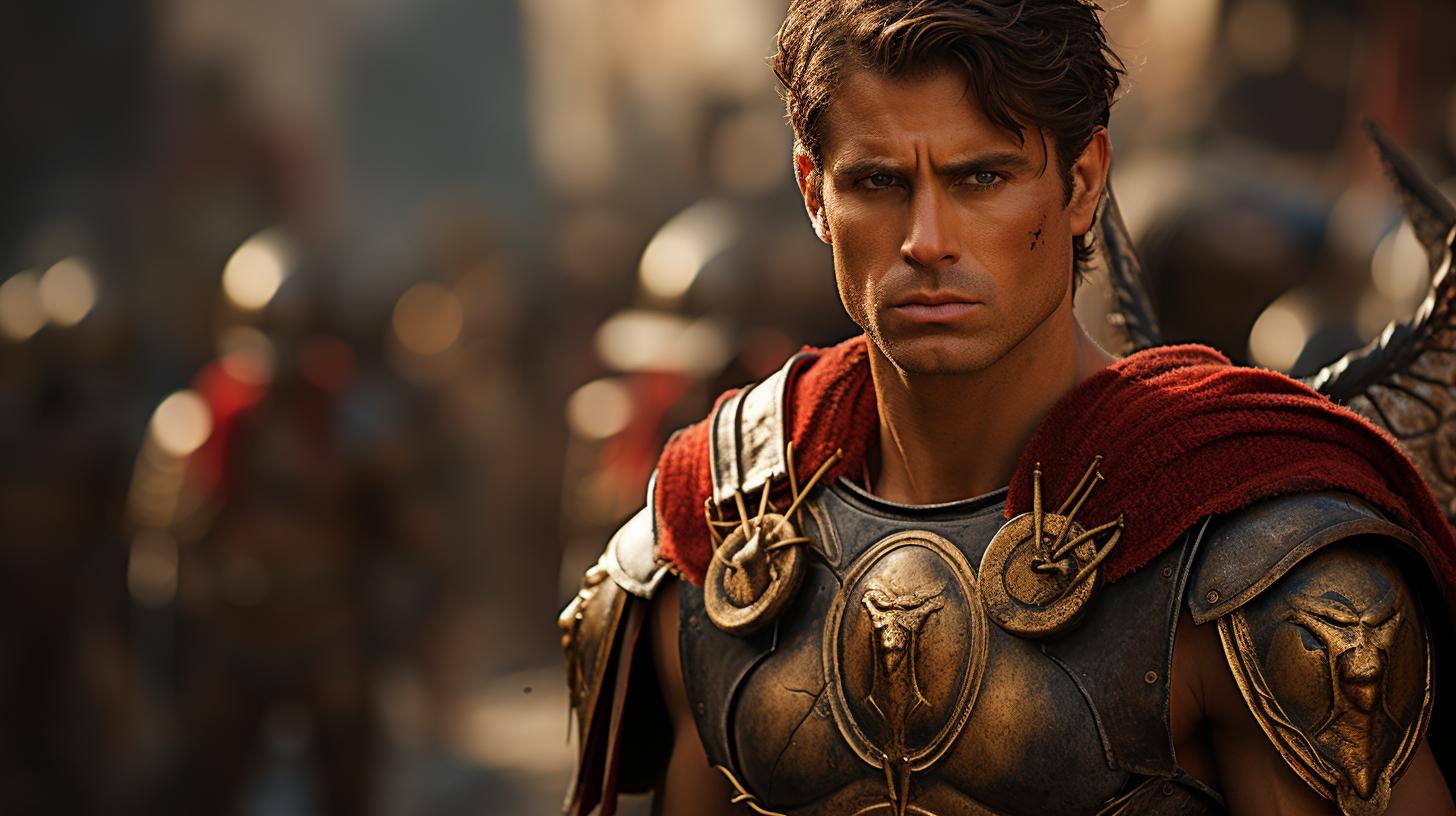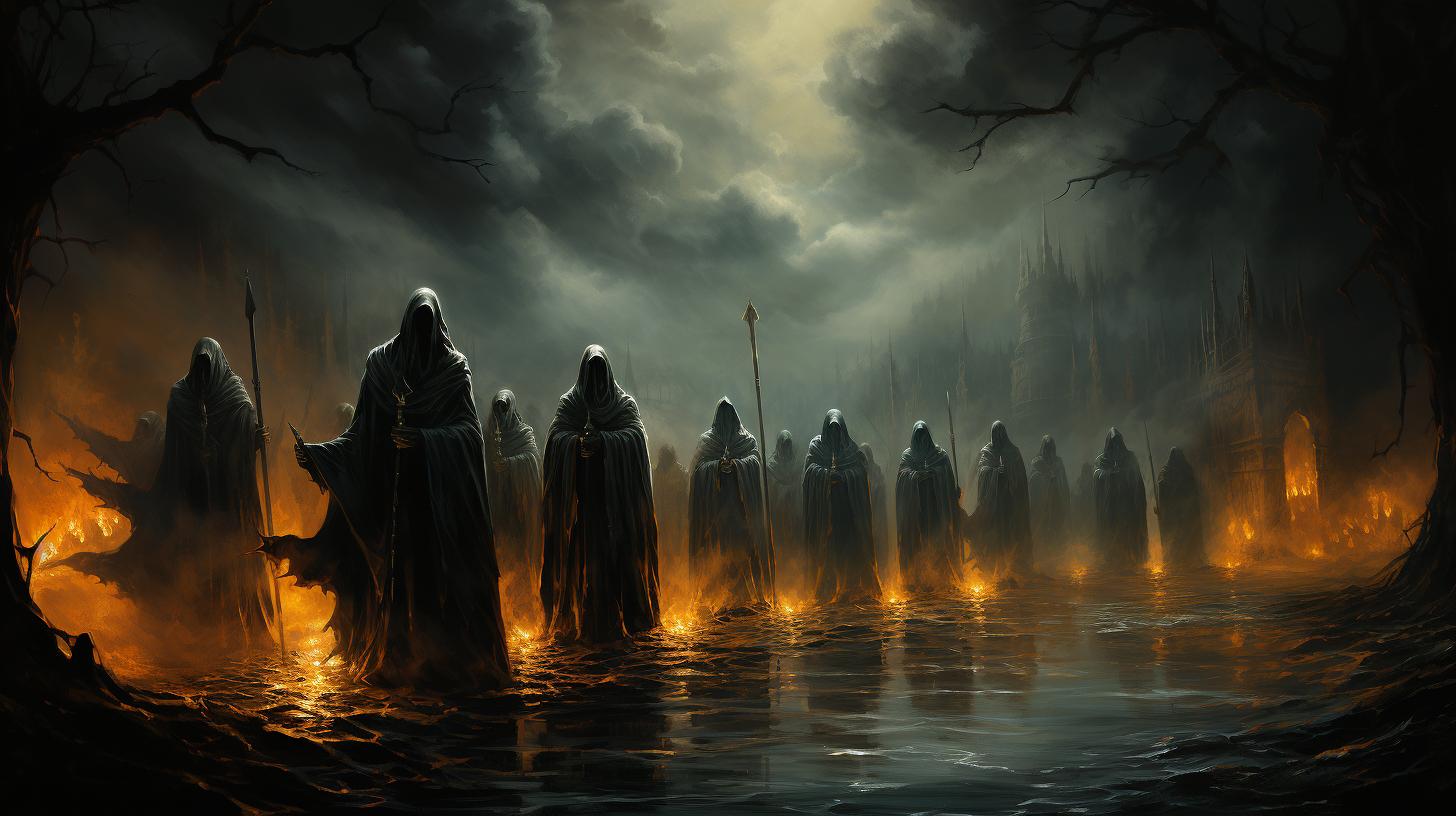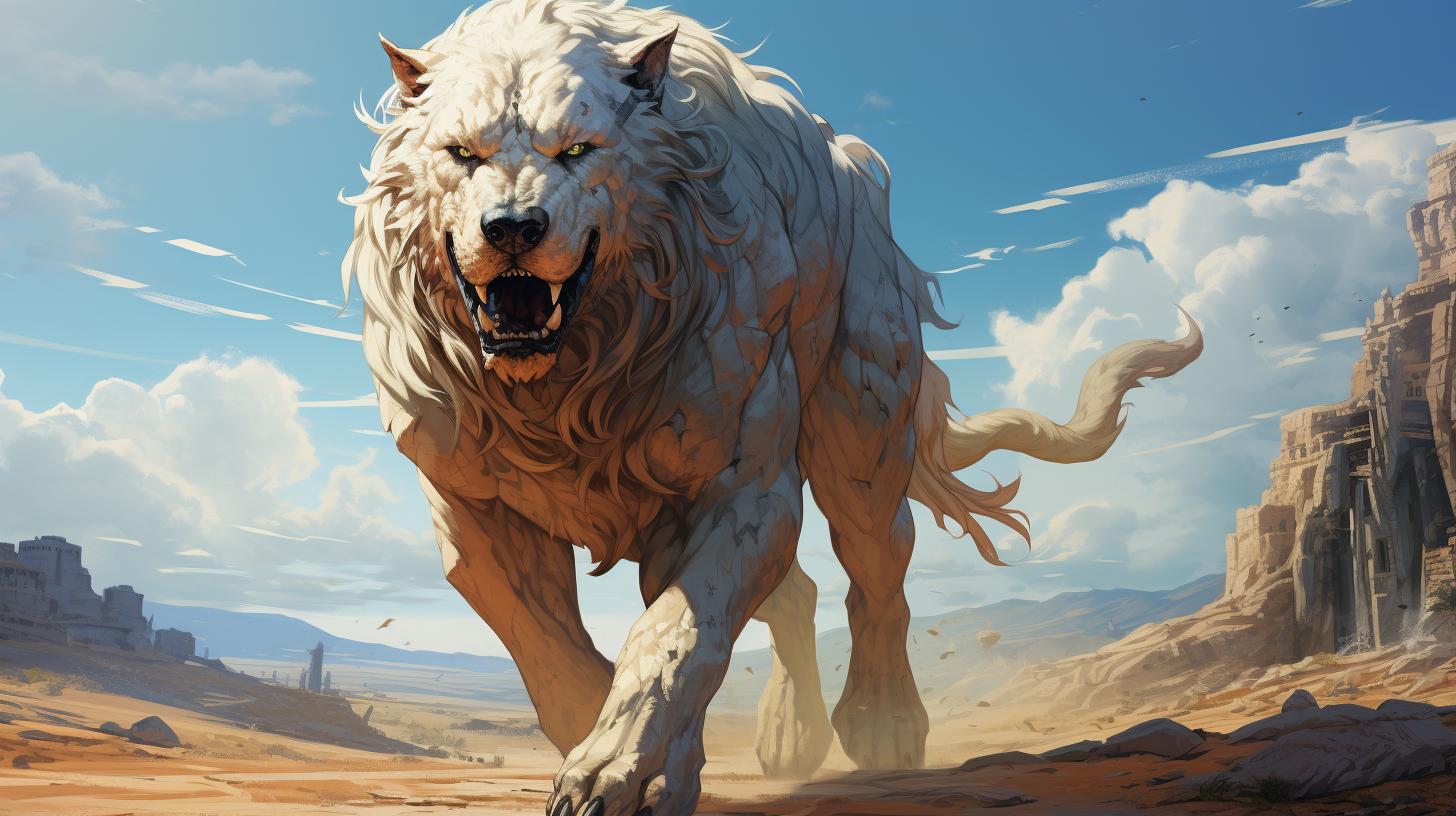Cetus Greek Mythology: Unveiling the Mysterious Marine Monster in Greek Lore
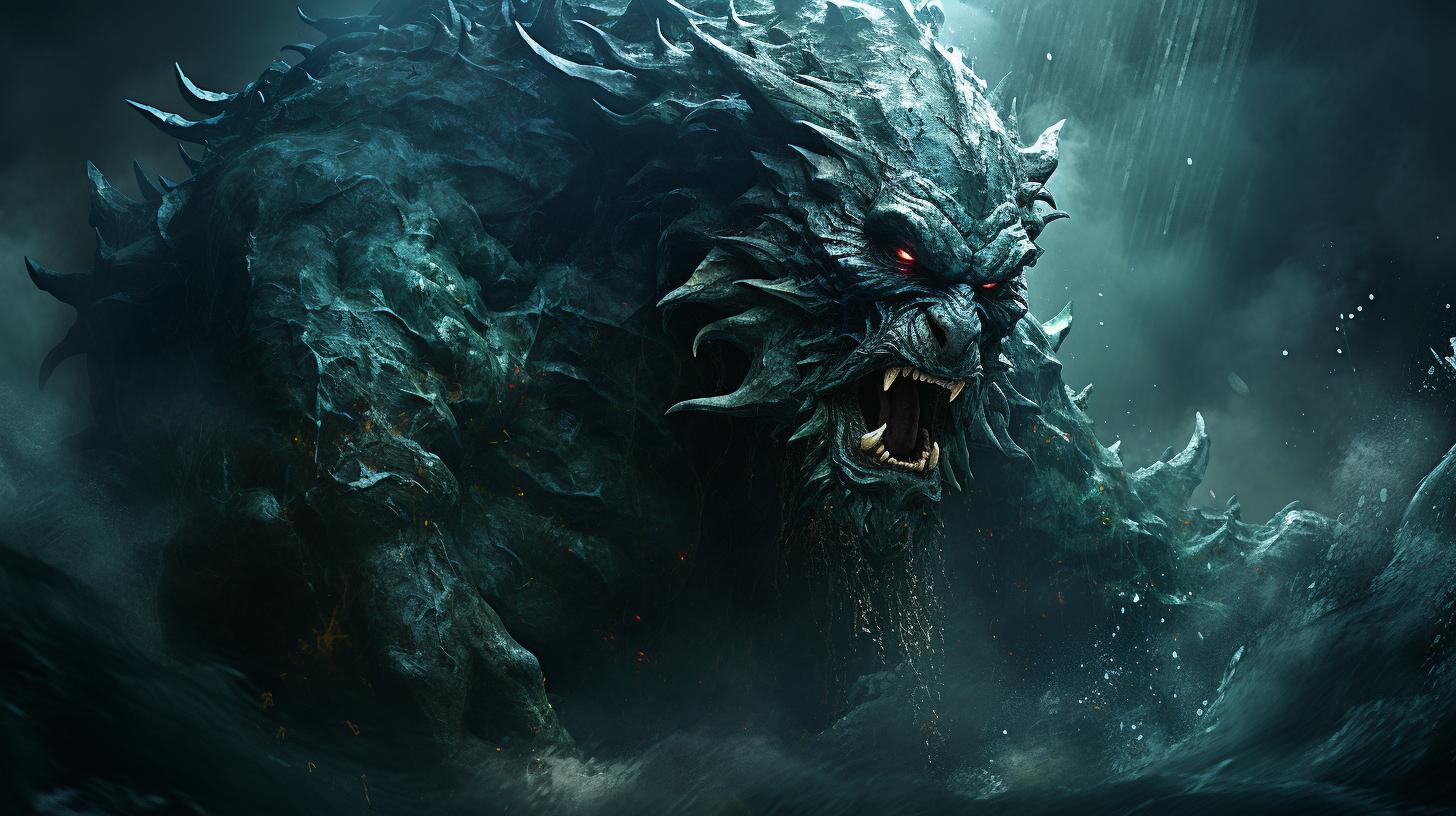
Cetus Greek mythology explores the intriguing tales surrounding this mythological creature. In Greek lore, Cetus was a monstrous sea creature sent by Poseidon to devour Andromeda, the daughter of King Cepheus.
The legendary hero Perseus intervened, ultimately saving Andromeda and conquering the beast. Cetus is also associated with the Cetus constellation, resembling a whale in the night sky. This article delves into the various myths, symbolism, and cultural references related to Cetus, offering insight into its significance in Greek mythology and beyond.
Overview of Cetus Greek Mythology
In Greek mythology, Cetus holds a significant place as a fearsome creature associated with the sea. It is said that Poseidon, the god of the sea, sent Cetus to wreak havoc and devour Andromeda, the daughter of King Cepheus of Ethiopia.
The myth narrates how desperately King Cepheus had to sacrifice his own daughter to appease the monster’s wrath.
Cetus gained notoriety when the hero Perseus, son of Zeus, encountered the situation.
Having recently defeated the serpent-headed Medusa, Perseus stumbled upon Andromeda chained to an ocean cliff. Instantly captivated by her beauty, he resolved to save her from Cetus’ clutches.
Perseus’ triumph over Cetus comes in different versions.
Some accounts depict him wielding the petrifying power of Medusa’s head, turning the sea monster into stone and securing Andromeda’s liberation. In other renditions, Perseus engaged in a fierce battle with Cetus, relentlessly striking with his sword until the creature was slain.
Not only does Cetus exemplify a menacing sea monster in Greek mythology, but it also symbolizes the perilous nature of the sea. Often referred to as a creature of Poseidon, the god of the sea, Cetus represents the treacherous waters and the lurking dangers they hold.
It is believed that the tales of Cetus’ attacks may have originated from significant natural disasters like tsunamis or earthquakes, with the blame being attributed to these mythical beings.
Furthermore, Cetus transcends the realm of mythology and finds its celestial representation in the Cetus constellation.
Named after its resemblance to a whale, the constellation showcases notable stars such as Beta Ceti, a prominent orange giant located approximately 96 light-years away from Earth, and Menkar (Alpha Ceti), a distinguished red giant situated around 220 light-years from our planet.
In summary, Cetus Greek mythology portrays a tale of the heroic Perseus slaying the sea monster Cetus to rescue Andromeda. Cetus symbolizes the dangers of the sea, serving as a warning against the perils that lay beneath the waves.
Additionally, the Cetus constellation perpetuates the mythological legacy of this creature, immersing observers in the celestial wonders of the night sky.
The Legend of Cetus and Perseus
The story of Cetus and Perseus is a gripping tale of heroism and adventure in Greek mythology. In this legendary account, Cetus, a fearsome sea monster, was unleashed upon the kingdom of Ethiopia as a punishment from Poseidon, the god of the sea.
To appease the raging beast, King Cepheus was forced to sacrifice his daughter, Andromeda, by chaining her to a rocky cliff to become Cetus’ dinner.
Perseus Saves Andrómeda
Just as Cetus was about to claim his prey, the valiant Perseus arrived on the scene. Perseus was a demigod and the son of Zeus, equipped with his wits, courage, and some powerful divine artifacts.
Having recently slayed the dreaded Medusa, whose gaze could turn anyone to stone, Perseus set his eyes upon the helpless Andromeda and instantly fell in love.
Driven by his passion and determination, Perseus devised a plan to save Andromeda from her bleak fate.
With the severed head of Medusa in hand, he faced Cetus head-on and turned the creature to stone with a single glance from the terrifying visage of Medusa. With Cetus forever frozen in its tracks, Perseus rescued Andromeda, claiming her as his wife, and delivered her safely back to her grateful father.
Different Versions of Perseus’ Victory over Cetus
There are variations in the retellings of Perseus’ triumph over Cetus. In some versions, instead of using Medusa’s severed head, Perseus employed his sword to repeatedly strike the sea monster until its lifeless body lay motionless in defeat.
These accounts emphasize Perseus’ incredible strength and prowess as a hero. Regardless of the method, Perseus’ bravery and resourcefulness enabled him to conquer Cetus and secure his beloved Andromeda’s freedom.
Cetus: The Sea Monster in Greek Mythology
Cetus, a fearsome sea monster, holds a significant place in Greek mythology.
It is closely associated with Poseidon, the god of the sea, who sent Cetus to wreak havoc and devour Andromeda, the daughter of King Cepheus of Ethiopia. This monstrous creature represents the dangers and unpredictability of the sea, embodying the primal forces that can threaten human existence.
Cetus as a Creature of Poseidon
In Greek mythology, Cetus served as a loyal servant to Poseidon, carrying out his bidding and acting as a terrifying enforcer of the sea god’s will. Its immense size and formidable power struck fear into the hearts of sailors, symbolizing the treacherous nature of the ocean and the potential dangers that awaited those who dared to venture into its depths.
Symbolism and Meaning of Cetus in Greek Lore
Cetus holds a symbolic significance in Greek lore, representing not only the brute force of the sea but also the consequences of human actions. The myth of Cetus and Andromeda serves as a cautionary tale, highlighting the repercussions of arrogance and the necessity for divine intervention to rectify our mistakes.
It embodies themes of sacrifice, heroism, and the triumph of good over evil.
- Cetus symbolizes the overwhelming power of nature and the uncontrollable forces that can cause destruction and chaos.
- It reinforces the idea that humankind must respect and appease the gods to avoid their wrath.
- The myth also draws attention to the power of love and the transformative abilities it possesses, as Perseus’ affection for Andromeda motivated him to confront and ultimately defeat Cetus.
Throughout Greek mythology, Cetus stands as a reminder of the perils that await those who challenge the natural order or underestimate the power of divine forces.
Its portrayal emphasizes the delicate balance between humans and the mysteries of the sea, urging respect, humility, and harmony with the natural world.
Cetus Constellation: A Stellar Representation
The Cetus constellation, also known as the Whale, holds a captivating place in Greek mythology and stargazing. Let’s delve into an exploration of its celestial wonders, notable stars, and mythological connections.
Introduction to Cetus Constellation
The Cetus constellation, prominently visible in the night sky, has fascinated astronomers for centuries. Located in the southern celestial hemisphere, it can be observed from latitudes between 70 degrees and -90 degrees in the Northern Hemisphere.
Its striking resemblance to a whale has lent it the name “Cetus” in Greek mythology.
Notable Stars in Cetus Constellation
Within the Cetus constellation lie several notable stars that add to its brilliance and allure. One such star is Beta Ceti, a stunning orange giant situated approximately 96 light-years away from Earth.
Another notable star is Alpha Ceti, also known as Menkar, a remarkable red giant located around 220 light-years from us. These stars contribute to the constellation’s visual splendor and significance in the night sky.
Mythological Connections to Cetus Constellation
Like many constellations, Cetus has deep roots in Greek mythology. It is intrinsically connected to the story of Perseus and Andromeda, where the hero Perseus relied on the constellation’s stars to navigate his way to victory.
The intertwined narrative of Cetus as both a celestial representation and a sea monster exemplifies the intricate tapestry between Greek mythology and the night sky.
Furthermore, the Cetus constellation’s appearance in the heavens has inspired countless interpretations and associations throughout different cultures and eras.
From ancient Greeks to modern astronomers, the significance and symbolism attributed to Cetus have evolved, further enriching the mythological lore surrounding this extraordinary stellar formation.
- Explore the celestial wonders within the Cetus constellation.
- Uncover the stories behind the remarkable stars of Beta Ceti and Alpha Ceti.
- Learn about the mythological connections and enduring symbolism of Cetus.
Cetus in Zodiac and Astrology
Cetus, the fearsome sea monster of Greek mythology, holds a significant place in zodiac and astrology.
Its influence on astrological interpretations is profound, as it represents elements of danger, transformation, and shadowy depths. Let’s explore how Cetus’s presence in the zodiac impacts the interpretation of celestial events and the traits associated with this mythical creature.
Cetus’ Influence on Astrological Interpretations
Within the realm of astrology, Cetus is associated with intense emotions, hidden fears, and subconscious desires. Its presence in astrological charts suggests a need to confront and navigate the depths of one’s psyche, exploring the darker aspects of the human experience.
Individuals with strong Cetus placements often possess a profound capacity for emotional transformation and the ability to come face-to-face with their inner demons.
Traits and Characteristics Associated with Cetus
The traits attributed to Cetus in astrology are characterized by mystery, depth, and an enigmatic aura. Those influenced by Cetus are often intuitive, perceptive, and possess a profound connection to their emotions.
They are inclined to explore the unknown and exhibit a strong adaptability when faced with challenging circumstances. However, they may also encounter periods of intense emotional turbulence and find solace in solitude and introspection.
- Explorers of the subconscious
- Intuitive and perceptive
- Adaptive in challenging situations
- Mysterious and enigmatic
- Emotionally transformative
- Comfort in solitude and introspection
As we delve further into the realms of zodiac and astrology, Cetus reveals itself as a celestial presence that examines the depths of our emotional landscape, urging us to confront our shadows and embrace profound transformation.
Its influence can offer valuable insights into our inner world and guide us towards a more profound understanding of ourselves.
Cetus as a Whale: Myth and Reality
Exploring the fascinating connection between Cetus and whales, we delve into ancient Greek beliefs regarding sea creatures. According to Greek mythology, Cetus is often depicted as a monstrous marine creature, serving as a symbol of the dangers lurking in the deep sea.
However, it is intriguing to note that Cetus also bears resemblance to actual whales, giving rise to a unique blend of myth and reality.
Ancient Greek Beliefs on Sea Creatures
Ancient Greeks held a deep reverence for the vast and mysterious oceans, which they believed were home to numerous extraordinary beings.
The concept of sea monsters, known as Cetea, permeated Greek mythology. These gigantic creatures, often associated with Poseidon, were said to play a role in natural disasters such as tsunamis and earthquakes.
Over time, the tales of these creatures evolved, integrated into various mythological narratives, possibly explaining the Greeks’ belief that Cetea were responsible for these calamities.
Cetus’ Relation to Whales and Marine Life
The association between Cetus and whales is intriguing.
While Cetus is traditionally portrayed as a monstrous sea creature, the resemblance to whales cannot be ignored. These gentle giants of the ocean share certain characteristics with the mythical Cetus, such as their immense size and their presence as awe-inspiring creatures of the deep.
It is possible that the mythological representation of Cetus was influenced by encounters with actual whales, further blurring the line between myth and reality.
In conclusion, the intertwining of myth and reality is evident in the concept of Cetus as a whale in Greek mythology.
This section explores the ancient Greek beliefs surrounding sea creatures, diving into the symbolic significance of Cetus as a representation of the dangers of the sea. Furthermore, we highlight the intriguing parallels between Cetus and actual whales, which adds a layer of fascination to the mythological narrative.
Cetus in Modern Culture and References
Cetus, the mythical sea monster, continues to captivate modern culture through its depiction in various forms of art, literature, and film. This section explores the enduring presence of Cetus in contemporary society and its significance in popular media.
Depiction of Cetus in Art, Literature, and Film
Artists, writers, and filmmakers have drawn inspiration from Cetus, incorporating it into their works to convey themes of danger, mystery, and the power of myth. Here are some notable examples:
- Art: Paintings, sculptures, and other visual artworks often feature Cetus as a fearsome creature emerging from the depths of the sea, symbolizing the untamed forces of nature.
- Literature: Cetus appears in numerous literary works, both in direct references to Greek mythology and in adaptations or reimaginings of the myth.
It serves as a symbol of the unknown and represents the challenges that characters must overcome.
- Film: Cetus has made its way onto the big screen, appearing in various films that draw inspiration from Greek mythology or feature creatures from the sea.
Its portrayal in movies ranges from terrifying antagonists to awe-inspiring mythical beings.
Contemporary Significance of Cetus Mythology
Cetus’ mythology continues to hold significance in contemporary times, serving as a metaphorical representation of various concepts and themes. Some of its modern-day implications include:
- Power of Nature: Cetus serves as a reminder of the uncontrollable and immense power of nature, reflecting the human fascination and respect for the forces of the sea.
- Overcoming Challenges: Cetus represents the challenges and obstacles that individuals must face in their personal journeys.
Its defeat by Perseus symbolizes the triumph of courage and determination.
- Symbolism of the Unknown: Cetus embodies the mysteries lurking beneath the surface, representing the exploration of the unknown and the quest for knowledge and understanding.
- Mythical Creatures in Contemporary Culture: Cetus’ enduring presence in popular culture demonstrates the enduring allure and fascination with mythical creatures, sparking imagination and inspiring new narratives in various forms of media.
.











